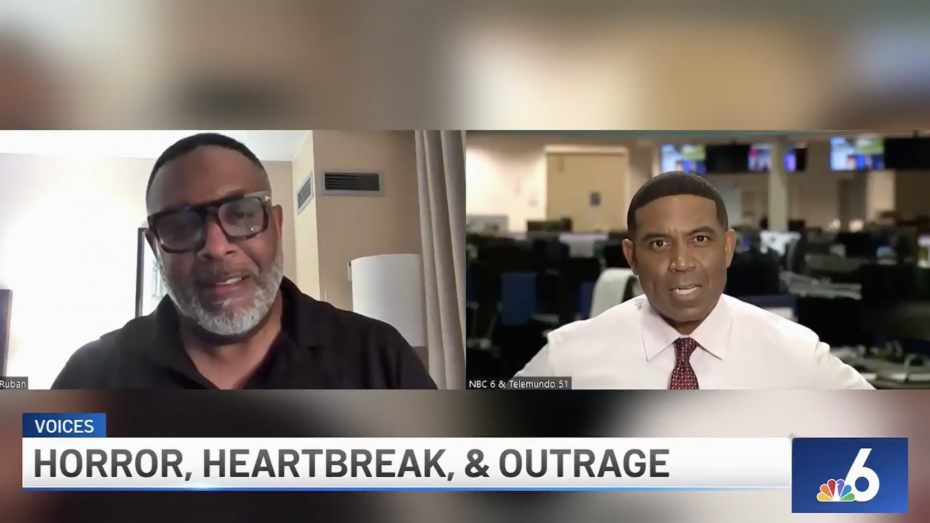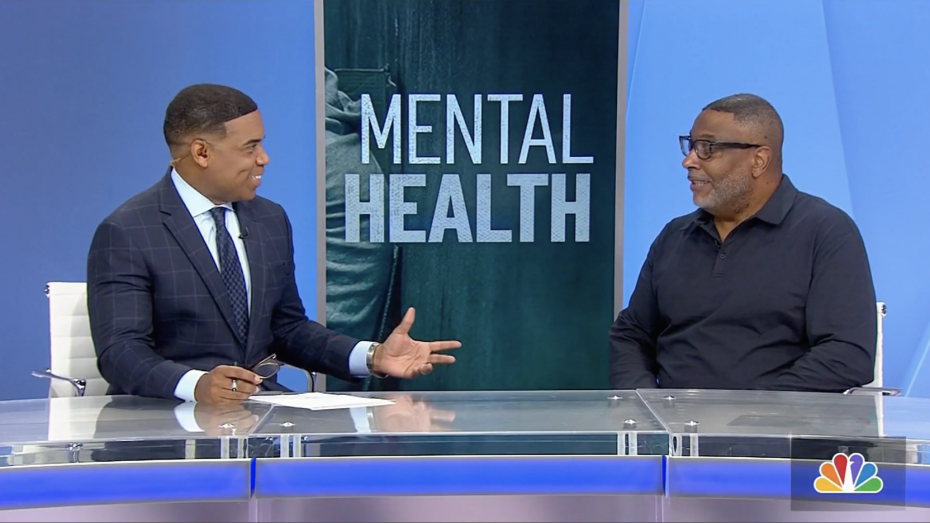Since losing her son to a stray bullet in 2014, Romania Dukes has traveled great lengths – from local pawnshops that sell handguns to the Florida State Capitol offices in Tallahassee – urging everyone to do their part in ending gun violence. But when she hears of mass shootings like the ones that happened in Buffalo, N.Y., and Uvalde, Texas, last month, for just a moment she stops, and all of her pain comes back.
Dukes, who founded Mothers Fighting for Justice after her 18-year-old son De’Michael Dukes was killed, has since formulated a support system with other parents who also have lost children to gun violence – whether it be on the street outside of their homes or at the hands of a mass shooter.
“Sometimes the media tries to separate the two, but we all suffer the same pain, so when things like this happen we immediately reach out to each other,” she said. “We’re all mothers that have seen the worst that a mother could see. We’ve heard the worst sound a mother could hear.”
Saddened enough by the death of their own family members, Dukes and others who have experienced similar trauma are pushed further into grief by stories that make them feel as though nothing has changed. And, as the Senate and the House continue to grapple with each other over how – or whether – to tackle gun legislation, many continue to look toward local leaders and entities for solutions.
When politics fail
Miami-Dade County Public Defender Carlos Martinez, as a member of the county’s safety and justice task force, has begun to engage local communities in an effort against gun violence. Beginning in Miami in March, the task force has since traveled to Tampa and Jacksonville, seeking possible solutions to bring back home.
“It’s critical that we deal with gun violence locally because, as we know, Washington, D.C., is dysfunctional and Tallahassee is dysfunctional,” Martinez said.
As upset as she is with other members of Congress, Rep. Sheila Cherfilus-McCormick wants to assure the public that the House is doing its due diligence. Four days after the shooting in Buffalo, the House passed the Domestic Terrorism Prevention Act of 2022 to tackle hate crimes within the U.S., such as those linked to white supremacy.
HR 8 and HR 1446 – both of which would enhance background checks for those looking to acquire gun permits – were also passed by the House in 2021. Now, they’re in the Senate’s hands, and that’s where Cherfilus-McCormick’s frustrations begin.
“I do believe that our constituents – the American people – they have the right to know why it seems and feels like nothing happens after these shootings, which is not true,” she said. “The truth is we continue to fight, we push legislation through the House. We push all types of bills that will get through the House, but they stop in the Senate.”
And although Martinez praises local efforts, such as Miami-Dade County Mayor Daniella Levine Cava’s Peace and Prosperity Plan to end gun violence, he has his own worries regarding the local justice system. Just like Dukes, he’s looking to bridge the gap between mass shootings and everyday street violence.
Oftentimes, Martinez explains, victims of gun violence are former perpetrators themselves, and it’s nothing but a mere title – plaintiff or defendant – that makes all the difference between what kind of services are offered.
“A lot of times we just process them through the court system without getting them the help that they need so that they can get better, so that they can be well,” he said.
Restorative services
To Martinez, no good comes from retribution without restoration. As a result, he wears a second hat – board member of South Florida organization Thriving Mind – in an effort to get victims proper care following traumatic events.
As the result of a $2.3 million Victims of Crime Act (VOCA) grant received in May 2021 from the Florida Attorney General’s office, Thriving Mind has recently launched its trauma recovery network through Jackson Health System. The program employs a network of social workers – including a special team of peer advocate specialists who have also endured trauma – to check in with victims of violent events.
“We thought it was so important to hire individuals with violent crime backgrounds themselves because they’re just much easier to talk with, to develop a rapport and establish trust,” said psychologist Steven Proctor, who runs the trauma recovery network.
Since the program’s launch in January, it has served approximately 85 people, including victims of violent crimes and their family members. An overwhelming majority of these have been related to gun violence, Proctor said.
And, he added, the majority have been Black or Hispanic.
That trend is mirrored throughout the country. According to the database EveryStat, Black people are seven times more likely than white people to die by gun homicide in Florida, and 10 times more likely to do so nationwide.
Ruban Roberts, founder of RER Consulting, often drives through Liberty City, where he sees memorials for gun victims lined up along fences, children in T-shirts that display the faces of friends and family who have lost their lives to gun violence – and people passing by both without blinking an eye.
“The trauma that’s caused by gun violence, especially in marginalized communities, has been normalized to a great degree,” said Roberts. “When you see such a high degree of violence in particular neighborhoods, the kids, the residents, the parents, everybody that lives in that neighborhood has the expectation that they could be the victim – or the perpetrator – of gun violence, and so that definitely has a lot to do with your state of anxiety, depression and stress as far as mental health and wellness is concerned.”
Preventative measures
Thriving Mind’s trauma recovery network connects people exposed to violent trauma to free mental health services in order to treat possible symptoms of post-traumatic stress disorder. Proctor says victims of gun violence are likely to exhibit a range of symptoms, including intrusive thoughts, trouble sleeping, difficulty concentrating, flashbacks, hypervigilance, anxiety, depressive episodes or suicidal thoughts.
But sometimes, Proctor says, victims don’t experience those at all. Sometimes, they just need help getting back on their feet. As a result, the trauma recovery network in part works to link victims with food baskets, housing vouchers and vocational assistance programs.
And to Roberts, these services – from assistance with mental health to access to basic needs – are as much a valid response to trauma induced by gun violence as they are to the very root of the problem causing it.
RER Consulting is the parent company of two signature programs working to prevent violent acts before they occur. One of them is the COVID-19 Mental Health and Wellness Program, which addresses everyday stressors that have been heightened by the pandemic, including job loss, weakened interpersonal relationships, housing displacement, food shortages and a lack of health insurance – all situational factors that, as Roberts says, can lead to a decrease in mental health and an increase in bad behavior.
“Mental health has definitely been so stigmatized, and it should not be,” Roberts said. “People should know that we all go through things. Everyone is susceptible to having some sort of crisis or situational crisis, but there is a way and there is a path forward. There is a way to mental health and wellness.”
Making wiser choices
A second initiative overseen by RER Consulting are its Teen Talk programs, through which Roberts hopes to bridge the gap between youth and the police. Together they hold spaces where current events can be discussed, ranging anywhere from the recent conflict between Will Smith and Chris Rock to the mass shootings that occurred last month.
“We want to make sure that our youth are making wise choices and understanding consequences for whatever behavior they exhibit,” Roberts said.
Likewise, he says, cops should think of the unintended byproducts that occur when youth are treated too harshly by the law. He believes we should be weary of throwing kids in jail for minor crimes and exposing them to harmful environments.
“The moment you put them in there with folks who are hardened, with folks who have had more harsh experiences in life, what you’re doing is breeding more severe criminals or people with more violent tendencies,” he said.
Both of Roberts’ efforts, although perhaps seemingly unrelated, work to address mental health at a level that is often overlooked. He says too few dollars are allocated to people exhibiting minor symptoms of anxiety, depression or stress – symptoms that should be treated before they build up to violence.
“I think that what happens with the stigma of mental health is that we oftentimes think of mental health on the severe end, so we think of schizophrenics, you know, folks with severe depression, but there are all types of diagnoses, situational diagnoses. Just the stress of losing your job or ending a marriage can really set you off,” Roberts said. “Mental health, if it’s addressed appropriately, will definitely have an impact on the violence that’s happening in our communities, so we need to make sure folks are aware of what’s going on.”
Read original article here.


